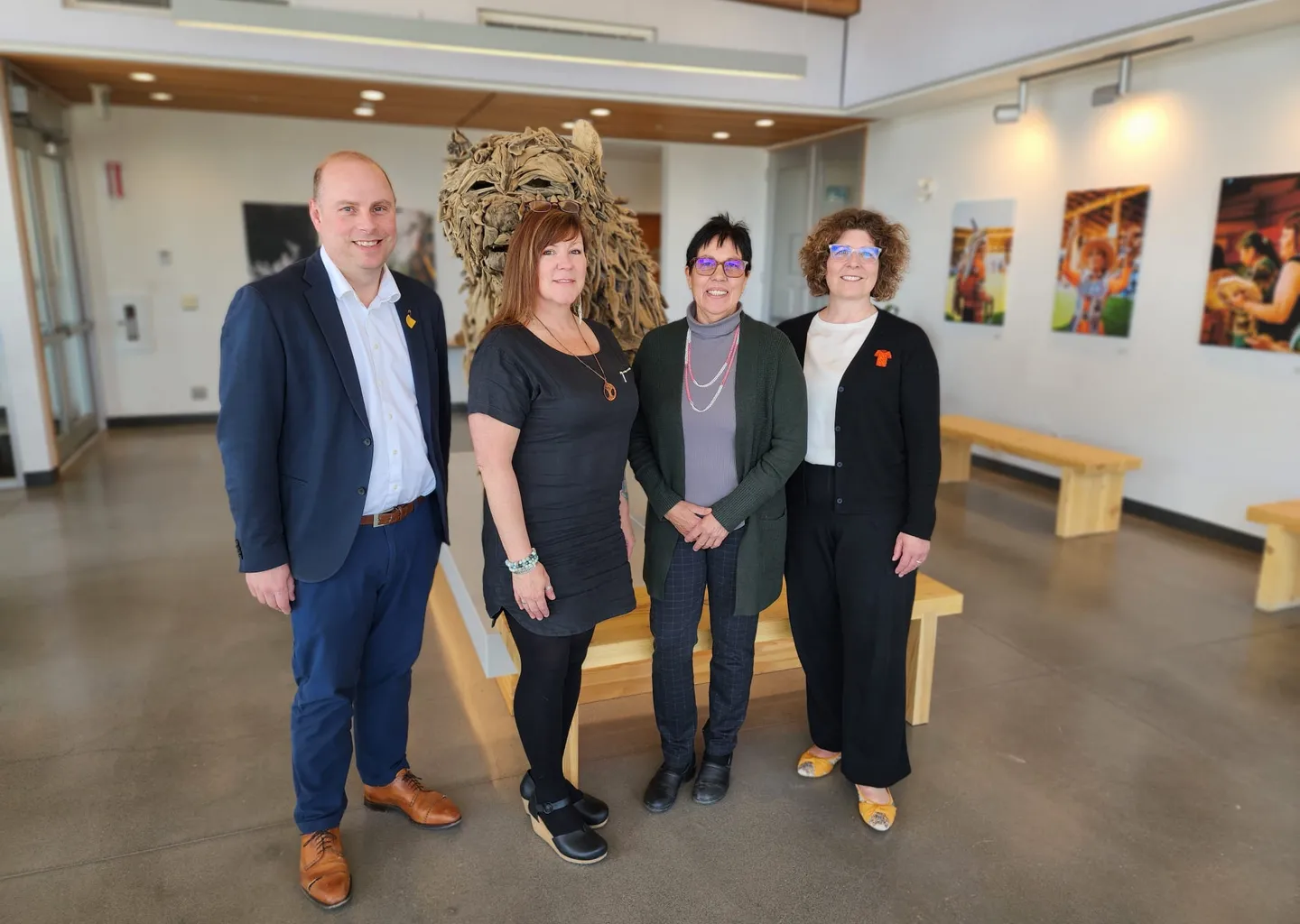WLFN and SD27 Pioneer New Data-Sharing Model to Decolonize Education

In a major step forward for Indigenous-led education reform, Williams Lake First Nation (WLFN) and School District 27 (SD27) have come together to renew their Local Education Agreement (LEA) with a new focus: transforming how data is shared and used to support Indigenous students.
Earlier this month, representatives from WLFN’s education team, Chief and Council, and senior administration welcomed SD27 leadership for a forward-looking discussion on renewing the Local Education Agreement (LEA) and developing a new model for student data sharing. The conversation focused not only on technical improvements, but also on transforming how information is accessed and used to better support students and families.
While LEAs have historically included provisions for data sharing, meaningful access and Indigenous-led analysis have long been a challenge across the province. That’s changing. Thanks to recent School Act amendments co-developed by the First Nations Education Steering Committee (FNESC) and the Ministry of Education and Child Care (Bill 40, 2023), First Nations now have the legislative tools to take the lead on student data.
“WLFN is one of the early adopters of a new data sharing platform that will empower Nations to guide the conversation using real-time data,” said Norma Sure, WLFN’s Director of Education. “It’s about shifting from asking for data to owning the data and using it to advocate for our children.”
Under the new model, WLFN and SD27 are co-developing a system that allows direct access to student data through the Learning Enhancement Agreement Platform (LEAP). This approach means that when LEA meetings occur, they won’t just focus on numbers—they’ll focus on how that data is being used to improve outcomes.
The renewed LEA, set to be completed by June 2025, marks a powerful shift in Indigenous educational governance. It’s not just about collaboration—it’s about transformation.
“We’re not just renewing an agreement,” said Council Member Shae Chelsea. “We’re decolonizing the process itself.”